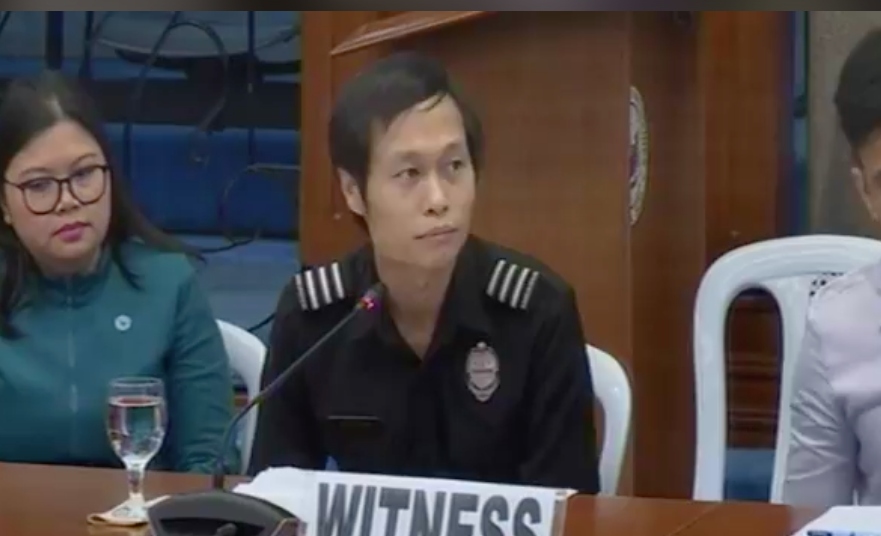Immigration officials at the Ninoy Aquino International Airport (NAIA) receive as much as PHP20,000 (US$393) per week in bribes for agreeing to be part of the pastillas scheme, a Bureau of Immigration (BI) officer revealed yesterday.
Allison Chiong, the whistleblower, said in a Senate hearing that he was the BI officer who gave the undercover video to Senator Risa Hontiveros that purportedly shows one of his colleagues facilitating the seamless entry of Chinese nationals into the Philippines. He said even foreigners of questionable backgrounds were allowed into the country thanks to the pastillas bribery scheme, so named because the bribes were rolled and wrapped in paper, just like the milk-based confection.
“Blacklisted [individuals] are included. They can freely enter our country,” Chiong said during the hearing in English and Filipino. “They just pass through the immigration counter. No questions asked.”
“Only 10 percent [of the officers] are not part of the modus,” he said, adding that the officials who agree to be part of it do so out of fear.
“Long-time employees are the ones who control [the scheme]. Of course, many [of the junior staff] are scared of them. They think ‘What will happen to my career? Will they bully me [if I don’t agree to be part of it]? Will they send me to Mindanao?'” Chiong said.
Chiong identified former Bureau of Immigration Deputy Commissioner Marc Red Mariñas, as the highest-ranking official involved, along with 11 other Travel Control Enforcement Unit (TCEU) officials.
The whistleblower said those working at NAIA Terminal 1 receive PHP20,000 per week in bribes, while those at Terminal 3 receive PHP8,000 (US$157). Chiong said the scheme started in 2016 after the Department of Justice removed BI officers’ overtime pay, and that BI officials are working in cahoots with China-based travel agencies who wanted to send the foreigners to the Philippines.
He added that the officers created a group chat on the messaging app Viber, where they would send and receive names of Chinese nationals whom they need to allow entry into the country. However, the group chat was deleted when the National Bureau of Investigation started a probe into their activities.
“To avoid detection, the names of the Chinese nationals who were to be allowed VIP treatment were no longer sent through Viber,” Chiong said. “To circumvent this, the flow of operations changed: the immigration officers at the counter were asked to bring each Chinese national to the holding area of TCEU and a member of the TCEU would then check the name with the master list.”
If the name of the Chinese national was on the list, the foreigner would then be allowed entry by the BI officers.
Hontiveros is on a campaign to shut down Philippine offshore gaming operations (more commonly known as POGOs), which are commonly staffed by Chinese nationals, because their presence has allegedly led to a string of crimes, most notably prostitution. Last week, Hontiveros presented a Taiwanese woman who was allegedly trafficked into the country to work in a POGO, where she was allegedly sexually harassed by her employers.




